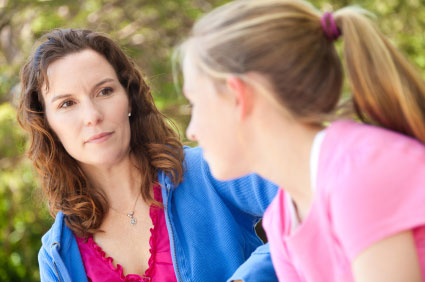Problem Ownership
'Who bought into this one?'

Here's a simple, powerful tool that has helped countless parents prevent misunderstanding and arguments. Identifying problem ownership takes practice. A cool head and a sensitive heart.
Here’s a question to ask yourself whenever you’re confronted by someone – say, your child – with a problem:
“Who owns this problem?”
Or
“Whose problem is this?”
And here’s an instant way to answer that question:
Ask yourself (again) “Who is upset here?”
Then you can decide if you really want to buy into the problem or not. Or maybe at least defer buying in until you’ve assessed the asking price.
“What will it cost me and what will it cost my child if I take on this problem and solve it myself?”
“Do I value my child’s independence or am I content to let him/her remain dependent on me?”
In reality we, as parents often take on our child’s problem faster than you can say “Wassup?”
So we’re talking of a simple solution that requires a lot of consciousness; the ability to feel into the situation even while we want to mentally fly off the handle!
Like with active listening , identifying problem ownership, in the heat of the moment takes practice. A cool head and a sensitive heart.
Here’s a familiar type of scenario:
Six year old Mary tells her mom
“Jessica’s not my friend any more!”
Mom: (active listening) You’re upset because you and Jess aren’t getting along.
Mary: Today she hit me and took my dolly!
(Mom is feeling somewhat shocked and wanting to protect her child, imagines going over to Jessica’s house and demanding Mary’s doll back, but then remembers about this Problem Ownership question and asks herself “Whose problem is this? It’s really Mary who’s upset. I don’t need to wade in yet.” So mom decides to keep listening and asking open-ended questions.)
Mom: Do you want to tell me about this?
Mary: Well,...
And Mary has the opportunity to retell the incident and decide for herself, with her mother’s loving and trusting support, what to do about it.
This kind of conversation is empowering for child and parent, fostering the kind of independence that leads to interdependence where we see that, as unique individuals, “standing on our own two feet;” being responsible for our own lives we are simultaneously dependent on each other in the entire web of life.
It's definitely a better strategy than buying in to all your kids' problems or shouting "Hey, that's YOUR problem, kid. Leave me alone!"
Like active listening, identifying problem
ownership takes practice and can’t be used all the time. It’s certainly
something to think about – and feel into!
Here's a helpful little video from The Gordon Training Institute that very clearly illustrates problem ownership. It enables us to look at any behaviour and decide how to respond based on whether
- The other person owns the problem
- There is no problem
- I own the problem or
- We own the problem
We can then decide which skills are needed, such as active listening, relationship skills, confronting skills (using 'I' messages instead of 'you' messages) or conflict resolution skills.
Recent Articles
-
Reconnective Healing and Biofield Therapy
Jan 13, 26 08:36 PM
Biofield Therapies – also known as Energy Healing or Frequency Healing are fast gaining recognition as natural, safe and effective ways to help us evolve beyond pain, dis-ease and limitation. -
Nine Teaching Strategies and ways to BE
Jan 13, 26 07:10 PM
A list of nine teaching strategies you'll need to remember if you want to evolve along with your students -
Introducing the Art and Science of Frequency Healing
May 26, 25 09:40 PM
New workshops announced here: in Hobart, Tasmania. Learn or enhance your healing abilities in hours instead of months or years
Return from Problem Ownership to the Parent Zone
Or go to the Home Page


